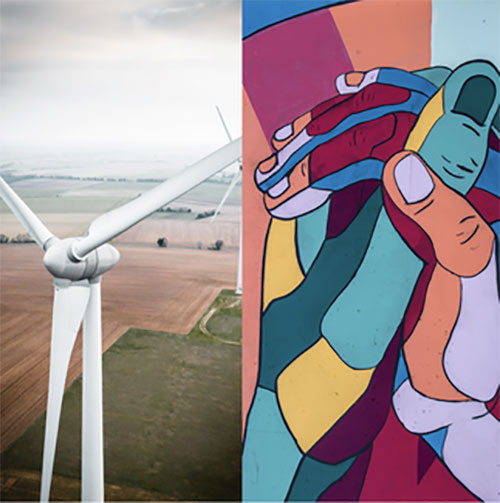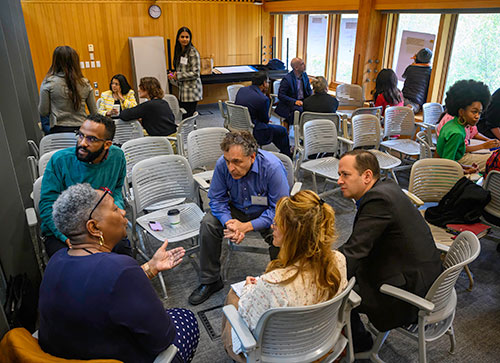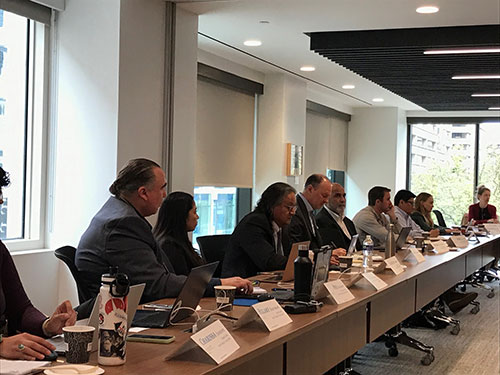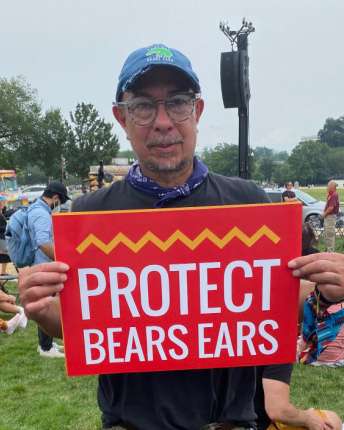Our Mission
Our world faces several existential threats whose roots lie in environmental and social injustice. The Yale Center for Environmental Justice (YCEJ) works with partners across Yale and in communities around the world to remedy the key drivers of injustice while co-creating generative solutions for a more just and sustainable world.
What We Do

Climate change and other environmental injustices demand big leaps in understanding, innovation, deployment and management. Working with over 30 faculty across the University, YCEJ institutionalizes new curriculum and field experience for undergraduate, masters and doctoral students and reaches hundreds of environmental leaders and professionals across the world every year with conferences, workshops and online certificate programs.
YCEJ works to power the growing awareness of environmental and climate justice with rigorous scientific, economic, social and policy analysis. We answer questions like, “How do we constructively and formally integrate indigenous knowledge in decision-making and emerging tools like generative artificial intelligence?” and “How do funds from the Inflation Reduction Act and other infusions of climate capital around the world augment a just transition?” YCEJ is institutionalizing strategic research capacities to fill pressing empirical, management and other knowledge gaps on an ongoing basis.


Solutions generated by and with environmental justice communities are key to meeting the urgency of environmental injustice and the climate crisis. YCEJ serves those communities as well as stakeholders in government and business. From local, grassroots venues to global climate negotiations, YCEJ generates impact through capacity building, strategic communications and centering community and under-represented voices.
Focus Areas
Indigenous Knowledge and Tribal Resource Management
YCEJ is expanding Yale’s curriculum in Federal Indian Law and Tribal Resources and Sovereignty and co-sponsoring a public-facing Seminar on Tribal Forestry. We also lead in advancing Tribal Co-Management Policy which allows for the exercise of sovereignty and traditional knowledge while advancing biodiversity and addressing climate change.
Clean and Equitable Energy Transitions
YCEJ is bringing the insights of environmental justice to clean energy development through the Clean and Equitable Energy Development Certificate Program in partnership with CBEY while offering a free Energy Justice Seminar open to the public. We work alongside grassroots partners to generate usable tools like A People’s Guide to Advance Environmental, Climate, and Energy Justice in Connecticut while spearheading research on the impact of Justice 40 investments for frontline communities.
Generative Solutions
YCEJ convenes environmental leaders across sectors and scales to accomplish more together than they can individually. Our annual Global Environmental Justice Conference draws speakers and participants from around the world and connects local initiatives to global policy. We convene a Global EJ Network to set an agenda for advancing climate justice through international policy levers. We also work with the world’s largest single-campus EJ faculty at Yale to co-create solutions for a more just and sustainable world.
Making Research Count for Communities
YCEJ partners with EJ leaders and regional initiatives to co-create usable knowledge through our EJ Community Fellows Program. We convene cross-campus learning communities in community-engaged research and host the first-ever New Haven People and the Environment Research Library (NH PERL) so residents and researchers can leverage the benefits of community-level data.
Who we are
The Yale Center for Environmental Justice is a joint undertaking between Yale School of the Environment and Yale Law School, in partnership with the Yale College’s Center for the Study of Race, Indigeneity, and Transnational Migration.

The Center was founded by Prof. Gerald Torres, one of the architects of the U.S. government’s first environmental justice executive order and a renowned scholar in constitutional and environmental law.





